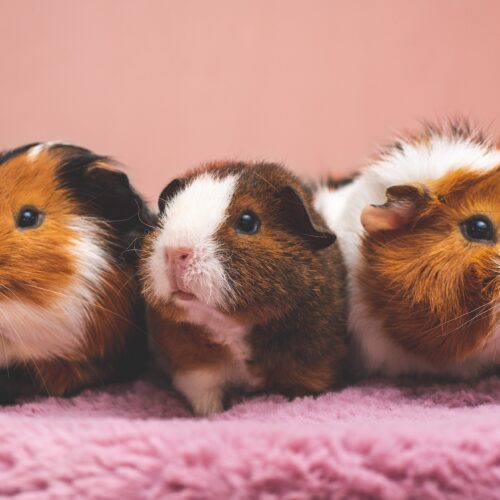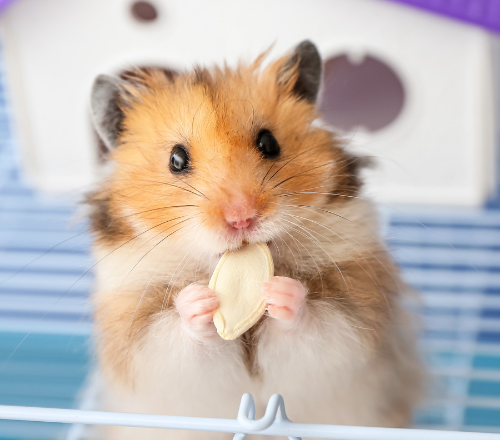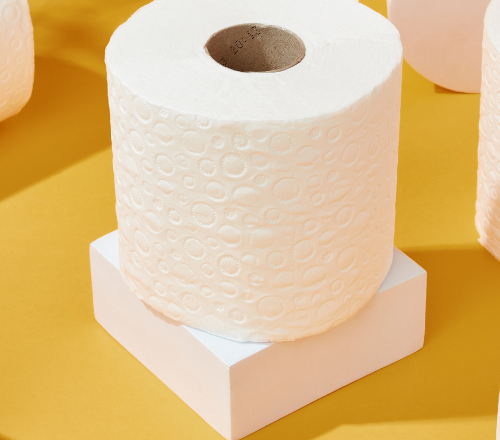When it comes to eco-friendly alternatives to traditional toilet roll, there are a few options. From FSC-certified rolls to those made from recycled paper, there is a good deal of choice on the market nowadays.
Among these options is the increasingly more accessible bamboo-based toilet paper. But what do we actually know about this type of toilet roll? How is this type of paper made? Is it safe to flush after use? And, most importantly of all, is it actually eco-friendly? In this handy guide we take a deep dive into the world of bamboo toilet paper to answer all of these questions and more.
What is bamboo toilet paper?
Bamboo toilet roll is an alternative to traditional toilet paper. As the name suggests, it’s made from the fast-growing bamboo plant. Despite this technically making it a grass-based paper, bamboo holds properties that are closer to hardwoods such as oak and maple – both of which are typically mixed with softwoods (such as pine) to make traditional toilet rolls.
How is bamboo toilet paper made?
Bamboo toilet paper is made using much the same production methods as traditional toilet roll. Indeed, the only real difference, as you’d expect, is that the process uses bamboo as its primary material instead of wood chippings and/or recycled paper.
After harvesting the bamboo, manufacturers break it down into small fibres and add these to a liquid mixture that creates a bamboo pulp. This pulp is then left to soak and press. At this point the pulp is formed into sheets of toilet paper and left to dry. Next, the manufacturers will start to roll the newly formed sheets into logs of paper. Here they will be cut into smaller rolls and packaged. They are then ready to sell.
Is bamboo toilet paper eco-friendly?</h2?
Bamboo toilet paper may be more eco-friendly than some other forms of loo roll, however, it’s still not a completely sustainable material.
The reason it is used so widely is because it is very fast growing. Indeed, bamboo grass can grow up to 35 inches every day – that's around 1.5 inches per hour! The plant also doesn’t require any fertiliser to grow and can regenerate its own root system, so no replanting is needed. For this reason, brands often refer to it as an eco-friendly material, and the fact it decomposes makes it sound even more appealing.
However, most commercially used bamboo bought by the UK is grown in and imported from China. In fact, over a third of the world’s bamboo is grown in this region of Southeast Asia and there are thought to be 500 species covering over four million hectares of land that is all for commercial use.
The carbon emissions involved in shipping the material or bamboo products from China, but also from countries like South America and Africa, could mean it’s not as eco-friendly as many people initially think. It generally has to be manufactured and imported in its final form as it doesn’t grow as readily or as densely in the UK climate.
Despite all this, one thing we do know is that bamboo is great at absorbing harmful greenhouse gases, such as carbon dioxide. It’s thought that the material can produce 35% more oxygen than trees, but that it can also absorb around 12 tonnes of CO2 per hectare per year. When this is the case, the four million hectares of bamboo in China could be taking in up to 48 million tonnes of CO2 each year. It is able to absorb this much because it grows so quickly.
Is bamboo toilet paper flushable?
Yes, bamboo toilet roll can be flushed. Once flushed, it starts to decompose almost instantly. The combination of the force of water produced by the flush and the moisture it absorbs causes the bamboo fibres to start breaking down. This means it is no more likely to cause a clog than traditional toilet paper.
Is bamboo toilet paper okay for septic tanks?
Bamboo toilet paper is also safe to use if your home uses a septic tank. Despite typically being as strong as traditional toilet roll, bamboo paper does break down just as easily. This means it shouldn’t cause blockages in your pipes and will not damage your septic tank system.
Alternatives to bamboo toilet paper
For those looking for a sustainable alternatives to traditional toilet paper, it’s important to note that bamboo toilet roll is not the only option. There is also toilet roll made from recycled paper and virgin cellulose paper that has been certified by the Forest Stewardship Council® (FSC®).
FSC-certified toilet paper
This is the quality toilet paper we sell here at Oceans*. It is made from virgin cellulose material, giving it a superior combination of super softness and strength. However, it also has the advantage of being made from materials that have been certified as 100% sustainably sourced, from FSC-certified growers. The FSC® promotes responsible forest managementand helps to protect ecosystems. The wood used to make this toilet paper is also sourced exclusively in Europe, meaning it has much fewer miles to travel to get to the UK, giving the product a smaller carbon footprint than many recycled and bamboo-based alternatives.
*Accrol Group Holdings Plc is FSC certificate holder (C074684). Oceans is part of Accrol Group Holdings Plc.




